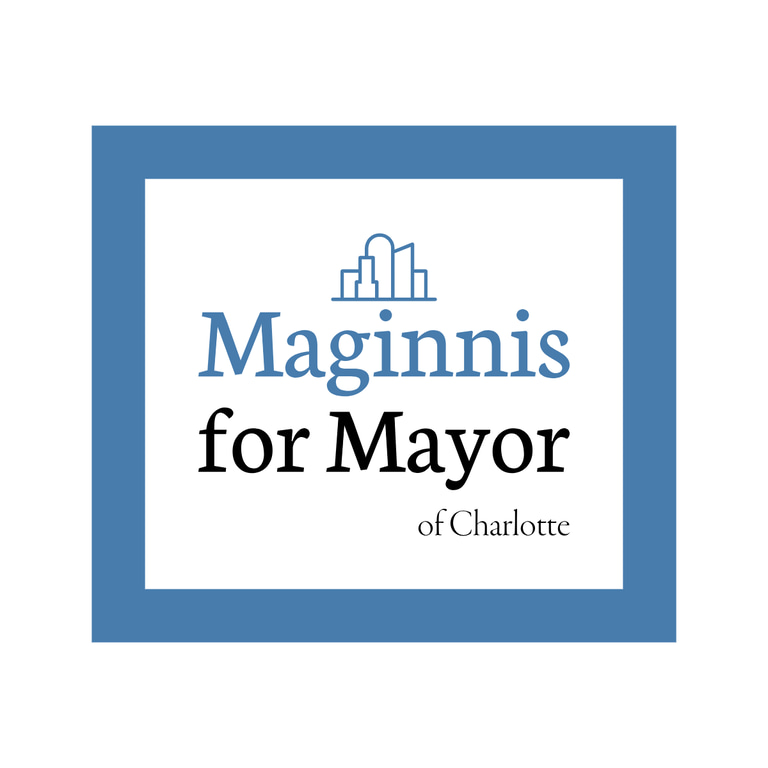Explore Our Issues
Discover detailed plans addressing critical issues from our dedicated issues page. Join us in making a difference.
Action Plan: Building a Charlotte With Affordable, Accessible, High-Quality Childcare for All
As a father, veteran, and small business owner, Brendan K. Maginnis understands the burden skyrocketing childcare costs place on Charlotte’s working families. Our city is one of the fastest-growing in the nation, yet too many low- and middle-income families struggle to afford quality childcare. Brendan’s plan will make childcare accessible and affordable, ensuring every child gets a strong start and every parent can pursue their career without financial strain.
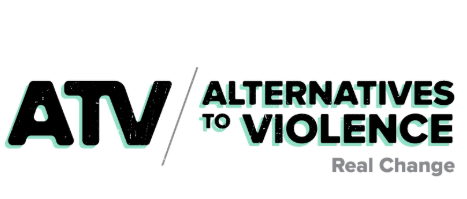

Expanding Successful Local Actions
Establishing more seats for Meck Pre-K and expanding the Alternatives to Violence Program to include after-school and summer care
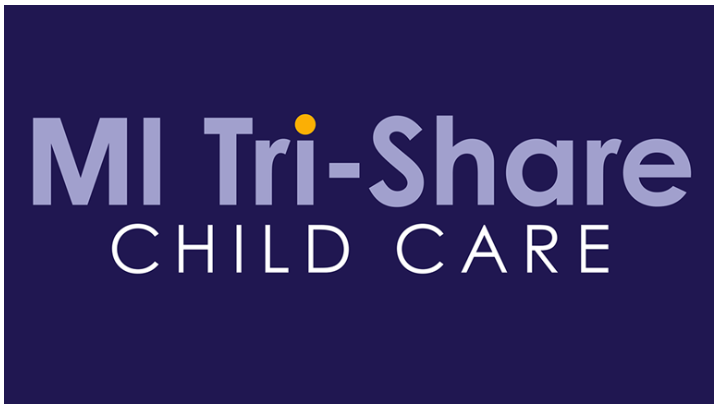

Innovative Actions from Other U.S. Cities
Introducing Charlotte 3-K, Charlotte Tri-share, and childcare subsidies to reduce childcare costs
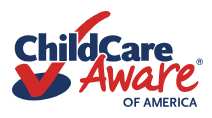

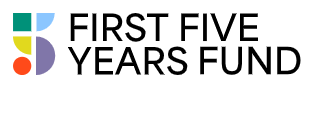

New Funding Partners and Organizations
Establishing new relationships to bring innovative solutions
Reducing Costs For Low-income and Middle Class Households
Free childcare for families below the Federal Poverty Level (100% FPL) and sliding scale reduction for families all the way up to 575% of FPL
Vision:
A childcare plan that builds on Charlotte’s strengths, expands proven local programs, and adopts innovative solutions from across the U.S. to deliver results for low- and middle-income families.
1. Expanding Successful Local Actions
- MECK Pre-K Expansion: Mecklenburg County’s MECK Pre-K program, launched in 2018, currently serves over 1,200 children with free pre-K for 4-year-olds. Maginnis will expand this by adding 1,000 new seats annually, targeting low-income and middle-class families in underserved neighborhoods like the “crescent” (north, east, and west Charlotte). This builds on the program’s proven success in improving kindergarten readiness by 20% in participating children. Cost: $8 million annually, funded by local property tax reallocation and corporate partnerships.(https://opportunityinsights.org/charlotte/)
- Alternatives to Violence Childcare Integration: Mayor Lyles’ Alternatives to Violence program has reduced violent crime in areas like Mecklenburg County by 15% through community engagement. Maginnis will integrate subsidized childcare and after-school programs into this initiative, offering free or low-cost care for children in high-risk areas during after-school hours and summer, supporting working parents and reducing youth crime. Cost: $5 million annually, funded by CCDBG and Truist Foundation. https://www.yapinc.org/CharlotteATV
2. Innovative Actions from Other U.S. Cities
- Charlotte 3-K Program (Inspired by NYC): New York City’s 3-K program provides free or low-cost pre-K for 3-year-olds, with over $3 billion invested to create 1,500 new seats in high-need areas. Maginnis will pilot a Charlotte 3-K program, offering free care for low-income families (below 100% FPL) and sliding-scale fees for middle-class families (100–575% FPL). This will add 1,000 seats in neighborhoods like Grier Heights, with a focus on early childhood development. Cost: $10 million annually, funded by Bank of America and Truist. https://growingupnyc.cityofnewyork.us/programs/3-k-for-all/
- Charlotte Tri-Share Program (Inspired by Michigan): Michigan’s Tri-Share program splits childcare costs equally among the state, employers, and families, targeting workers earning 200–325% FPL. Maginnis will partner with Charlotte employers like Bank of America and Lowe’s to launch a similar program, reducing costs by up to 66% for middle-class families and making childcare accessible for low-income workers. Cost: $7 million annually, with $2 million from the city, $3 million from employers, and $2 million from CCDBG. https://www.michigan.gov/mileap/early-childhood-education/mi-tri-share-child-care
- Vermont-Style Subsidy Expansion: Vermont’s childcare subsidies cover families earning up to 575% FPL, with copays capped at 7% of income. Maginnis will adopt this model, expanding North Carolina’s subsidy eligibility (currently 200% FPL) to include middle-class families, ensuring no family pays more than 7% of income on childcare. This will benefit 10,000 additional Charlotte households. Cost: $12 million annually, funded by CCDBG and local taxes. https://www.healthykidsprograms.com/vt-subsidies
3. Funding Sources
- Bank of America Community Investment Fund: As a major Charlotte employer, Bank of America has committed $1.7 million to the Mayor’s Racial Equity Initiative. Maginnis will secure $5 million annually for childcare subsidies and provider training, leveraging their focus on economic mobility.
- Truist Financial Foundation: Truist, headquartered in Charlotte, supports education and economic development. Maginnis will negotiate $3 million annually to fund Charlotte 3-K and workforce training, building on their existing philanthropy.
- Local Property Tax Reallocation: Charlotte’s 2023 General Fund allocated only 2.8% ($21.6 million) to Housing and Neighborhood Services. Maginnis will redirect $10 million annually to childcare, prioritizing affordability over lower-priority expenditures like street lighting ($9.8 million).
- Federal CCDBG Funds: North Carolina receives $300 million annually in CCDBG funds. Maginnis will advocate for a $15 million increase for Charlotte, aligning with bipartisan support for childcare investment (85% of voters support CCDBG expansion).
How We’ll Fund Affordable Childcare in Charlotte
4. Partner Organizations (Not Currently Utilized in Charlotte)
- First Five Years Fund (FFYF): FFYF’s expertise in securing federal childcare funding will help Charlotte maximize CCDBG grants and design effective subsidy programs. Their bipartisan polling shows 89% voter support for childcare plans, strengthening advocacy efforts. https://www.ffyf.org/2024/05/16/new-polling-on-child-care-and-the-2024-election/
- Opportunity Insights: This Harvard-based group’s Charlotte Opportunity Initiative identified low mobility in neighborhoods like Grier Heights. Maginnis will use their data to target childcare investments, ensuring equitable access.(https://opportunityinsights.org/charlotte/)
- Child Care Aware of America: This organization can provide training and certification for Charlotte’s childcare workforce, addressing shortages and improving quality. Their programs have increased retention by 30% in other cities. https://www.childcareaware.org/
- Charlotte Regional Business Alliance: Engaging local businesses to join the Tri-Share program will leverage their interest in workforce retention, as seen in the U.S. Chamber of Commerce’s Child Care Innovation Summit. https://www.ffyf.org/policy-priorities/45f/
5. Benefits for Low-Income and Middle-Class Households
- Low-Income Households (Below 100% FPL):
- Free Charlotte 3-K and MECK Pre-K for 3- and 4-year-olds, saving families $10,000–$15,000 annually.
- Fully subsidized after-school and summer programs in high-need areas, reducing parental stress and youth crime.
- Access to Tri-Share for low-income workers at participating employers, eliminating out-of-pocket costs.
- Middle-Class Households (100–575% FPL):
- Sliding-scale subsidies capping childcare costs at 7% of income, saving families earning $50,000–$100,000 up to $5,000 annually.
- Tri-Share participation reduces costs by 66%, making center-based care affordable (average cost: $12,000/year).
- Extended-hour programs for non-traditional work schedules, inspired by NYC’s model, support middle-class parents in retail and healthcare. https://www.nyc.gov/office-of-the-mayor/news/668-24/mayor-adams-city-council-historic-10-point-plan-make-high-quality-child-care-more#/0
- All Households:
- 1,500 new 3-K and Pre-K seats address childcare deserts, particularly in the “crescent” neighborhoods. https://opportunityinsights.org/charlotte/
- Workforce training ensures high-quality care, benefiting all children’s development.
Implementation Timeline
- Year 1 (2026): Launch Charlotte 3-K pilot (500 seats), initiate Tri-Share with 10 employers, and secure $23 million in funding (Bank of America, Truist, CCDBG, local taxes). Partner with FFYF and Opportunity Insights to design programs.
- Year 2 (2027): Expand 3-K to 1,000 seats, add 1,000 MECK Pre-K seats, and scale Tri-Share to 20 employers. Integrate childcare into Alternatives to Violence.
- Year 3 (2028): Fully implement subsidy expansion to 575% FPL, train 500 childcare workers with Child Care Aware, and evaluate program impact with Opportunity Insights.
Expected Outcomes
- Economic Impact: Increase parental workforce participation by 10%, adding $500 million to Charlotte’s economy annually, as seen in states with robust childcare investment.(https://www.pa.gov/agencies/dhs/newsroom/williamsport-proposal-to-expand-pennsylvania-s-child-care-workfo.html)
- Child Development: Improve kindergarten readiness by 25% for low-income children, closing achievement gaps.(https://opportunityinsights.org/charlotte/)
- Family Savings: Save low-income families $10,000–$15,000 and middle-class families $3,000–$5,000 annually per child.
- Equity: Reduce disparities in childcare access in low-mobility neighborhoods, aligning with the Mayor’s Racial Equity Initiative.(https://www.equityclt.org/)
Critical Analysis
While Mayor Lyles has focused on economic growth and equity (e.g., $250 million Racial Equity Initiative), her administration has not prioritized childcare affordability, with only 2.8% of the 2023 budget allocated to neighborhood services.
Maginnis’ plan leverages Charlotte’s corporate presence (Bank of America, Truist) and federal opportunities (CCDBG) to fill this gap, addressing voter demand (89% want childcare plans) and bipartisan support for childcare investment.
Unlike Lyles’ broader equity focus, Maginnis’ targeted childcare plan directly addresses family budgets and workforce needs, offering a practical, data-driven alternative.
Conclusion
This plan positions Brendan K. Maginnis as a forward-thinking candidate who builds on Charlotte’s successes, introduces proven innovations, and prioritizes affordability for all families, challenging Mayor Lyles’ record with a bold, actionable vision.
Brendan’s Childcare Plan at a Glance
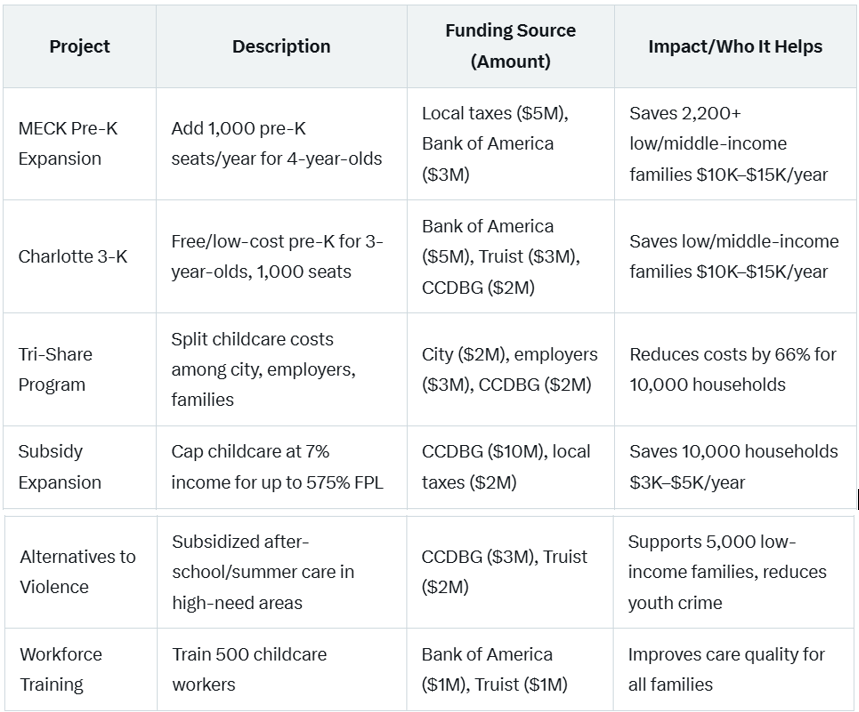



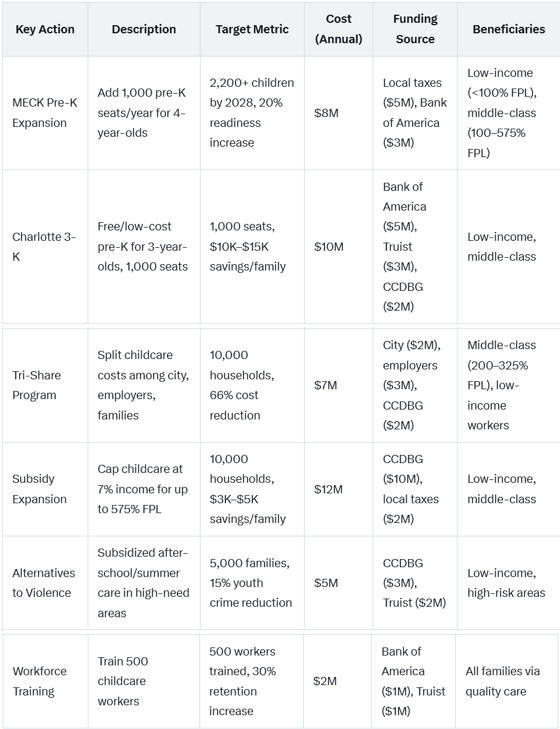

Join Our Subscription Today
Stay updated on our detailed issue plans.
Contact Us for More Info
Reach out for inquiries about our detailed plans on various issues. We're here to assist you with any questions you may have.
Support
123-456-7890
Help
info@fqexx.com
Join us in creating a better Charlotte together.
Contact
Connect
info@maginnisformayor.org
704-576-2887
© 2025. All rights reserved.
Paid for by Maginnis for Mayor of Charlotte Committee
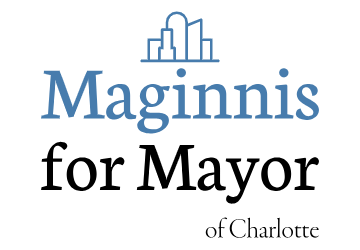

8240 Ballantyne Commons PKWY, PO 49503,
Charlotte, NC 28277
